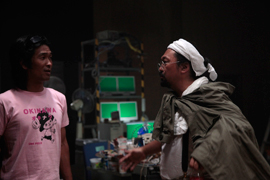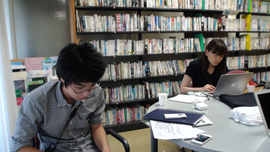Archives
- 2011/09/22Day 32 of shooting
- 2011/09/21Day 31 of shooting
- 2011/09/20Day 30 of shooting
- 2011/09/08Day 29 of shooting
- 2011/09/07Day 28 of shooting
- 2011/09/06Day 27 of shooting
- 2011/09/05Day 26 of shooting
- 2011/09/04Day 25 of shooting
- 2011/09/03Day 24 of shooting
- 2011/09/02Day 23 of shooting
- 2011/09/01Day 22 of shooting
- 2011/08/30Day 21 of shooting
- 2011/08/29Day 20 of shooting
- 2011/08/28Day 19 of shooting
- 2011/08/27Day 18 of shooting
- 2011/08/26Day 17 of shooting
- 2011/08/25Break in the shooting
- 2011/08/24Day 16 of shooting
- 2011/08/23Day 15 of shooting
- 2011/08/22Day 14 of shooting
- 2011/08/21Day 13 of shooting
- 2011/08/20Day 12 of shooting
- 2011/08/19Day 11 of shooting
- 2011/08/18Day 10 of shooting
- 2011/08/17Day 9 of shooting
- 2011/08/16Day 8 of shooting
- 2011/08/15Day 7 of shooting
- 2011/08/14Break in the shooting
- 2011/08/13Day 6 of shooting
- 2011/08/12Day 5 of shooting
- 2011/08/11Day 4 of shooting
- 2011/08/10Day 3 of shooting
- 2011/08/09Day 2 of shooting
- 2011/08/08The 1st day of shooting
- 2011/08/04All staff meeting

Discussing action with Karasawa-san.

In the front of this photo is Naoka Watanabe from our Modern Visual Information department. He’s been a frequent object of wrath on set. In the corner is Jellyfish Eyes” Kaikai Kiki-side producer Chiaki Kasahara.
It’s the first day of shooting on a built set. I was concerned with a great many things so I’ve been cracking the whip on them all morning. Now it’s time for the main event!
On set, I’ve already been brought to tears by the skills of the actors several times. I even cried during the comedy scenes. I get caught up in imagining each characters’ background and find myself going over each line of dialog in my mind, imagining all the unsaid reasons they say sometimes ridiculous things and end up crying.
What is it that people need from stories. I’ve been thinking about this a lot the past several days. People need an external device that can make them forget about the struggles they go through every day. That device is storytelling. The scale of experiences that an individual can go through in one single life is limited. Even today, in the age of computers, where the internet has linked the world together and we can fly anywhere for a reasonable price, those of here in Japan are still limited to our individual experiences and most of the unforgettable ones are negatives. re is only so much that a single person can experience in one lifetime. Our positive memories form only a tiny speck of our total experience. And to escape that fact, we need stories.
Postwar Japan has a history of eliminating tales which reflect on the darker parts of life. These memories began piling up beneath the surface in hidden, unseen layers until finally they were completely concealed, only to burst forward all at once with the recent disasters. Japanese are beginning to protest the state of things in Japan. I began looking at Japanese stories and thought “everyone has got it all wrong”. This comfortable, superflat country that we call Japan was created entirely by our own hands.
Learning to live, even if it means accepting the worst aspects and the worst periods of life. It’s true that there is much in the world that we cannot be proud of, but getting our hands dirty in the muck of it all is the only way to affect real change.
I want to craft a story that communicate this message to children. No. To all of Japan. They don’t have to listen, but I do have to speak. The movie I’m making is built on this ambition.
And that’s why I become all sentimental watching those miraculous moments when the actors fully embody their roles.